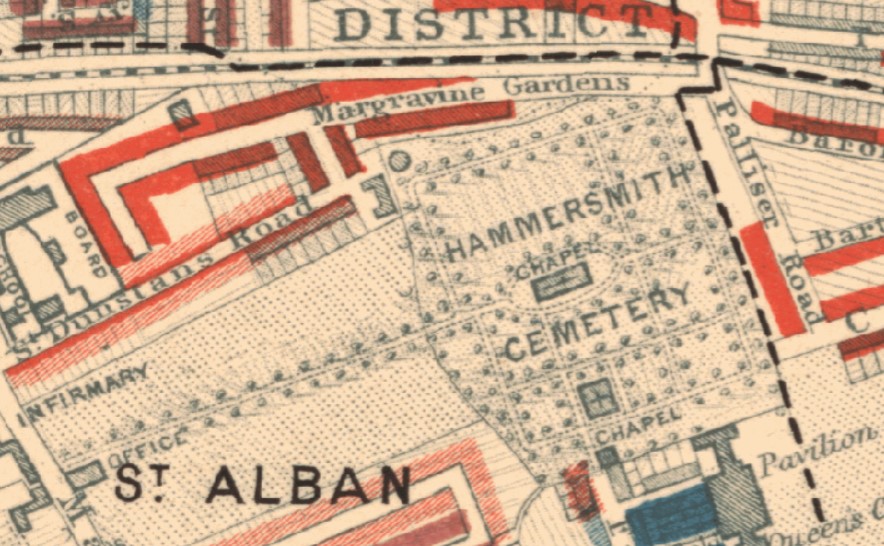Margravine (Hammersmith) Cemetary: Difference between revisions
(Created page with ";London - Pax Britannica Margravine Cemetery, also known as Hammersmith Cemetery, is in the London Borough of Hammersmith and Fulham. The closest London Underground stati...") |
No edit summary |
||
| Line 1: | Line 1: | ||
;[[London - Pax Britannica]] | ;[[London - Pax Britannica]] | ||
;[[File:Hammersmith Cemetary.jpg]] | |||
Margravine Cemetery, also known as Hammersmith Cemetery, is in the London Borough of Hammersmith and Fulham. The closest London Underground station is Barons Court. | Margravine Cemetery, also known as Hammersmith Cemetery, is in the London Borough of Hammersmith and Fulham. The closest London Underground station is Barons Court. | ||
Latest revision as of 16:29, 7 May 2023
Margravine Cemetery, also known as Hammersmith Cemetery, is in the London Borough of Hammersmith and Fulham. The closest London Underground station is Barons Court. History
Designed by local architect George Saunders, Margravine Cemetery was opened in 1868 on a site previously occupied by market gardens and orchards, known as Fulham Fields. The first burial took place on 3 November 1869.
Margravine closed for new burials in 1951, when the 16.5 acres of cemetery land were restored by the council and designated a 'Garden of Rest'.
The cemetery contains a number of distinctive monuments, three of which are listed buildings. Most striking is the green bronze memorial to George Broad, who owned the foundry which made the Eros statue at Piccadilly Circus. Nearest Charing Cross Hospital, the Young family mausoleum is a single-story building in Gothic architecture style. The third listed grave is that of an Australian gold prospector, with a bass relief of him, opposite the Young family mausoleum.
